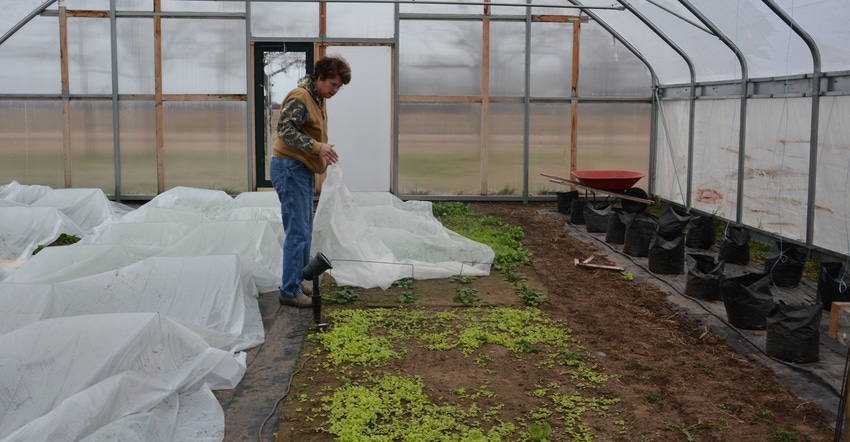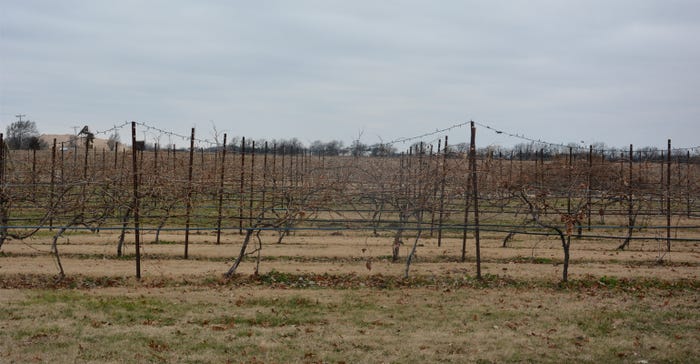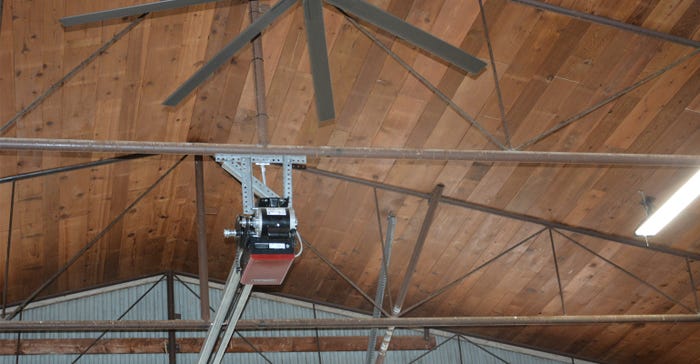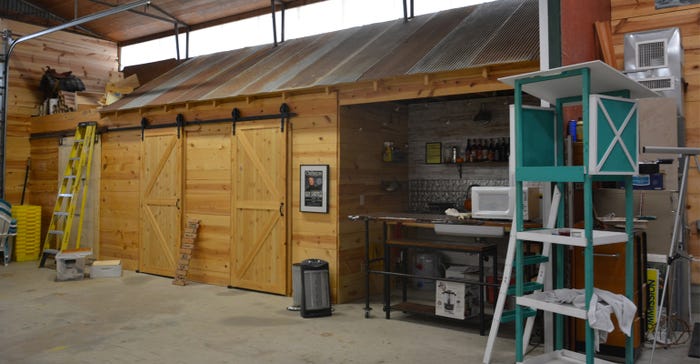
Carolyn McGinn has a passion for Kansas agriculture.
As the wife of fifth-generation Sedgwick County farmer Mark McGinn, she says she has watched the steady erosion of understanding that people have about where their food comes from – even when it comes from a very short distance away.
"When we were first married, Wichita was about 20 or 30 minutes away," Carolyn says. "Now, it is 10 minutes away. And we haven’t moved. It has grown toward us."
It was the proximity of the city and her knowledge of the gap of understanding that led her to consider adding an agritourism experience to the farming operation. Two years ago, the McGinns decided to add vegetable gardens and kid-friendly donkeys, goats, sheep and chickens to the farming operation.
"Mark worked for Cessna for 32 years and retired about seven years go," Carolyn says. "We’ve had a traditional irrigated corn and soybeans with dryland wheat farming operation. After his retirement, we thought we could add agritourism."
On a cold, blustery December day, Carolyn gave a tour of her recently added high tunnel, a piece of infrastructure that enables her to grow cool weather crops such as butter lettuce, kale, radishes and beets all winter long. She markets mostly to local food suppliers including Prairie Harvest at Newton.
 FUTURE PRODUCTION: The vineyard at McGinn Farms supplies crops to a local winery and sells the excess production to local food distribution cooperatives.
FUTURE PRODUCTION: The vineyard at McGinn Farms supplies crops to a local winery and sells the excess production to local food distribution cooperatives.

She says an Environmental Quality Incentives Program grant through USDA helped her pay to put up the high tunnel. She purchased a kit for construction of the building, opting for hard plastic ends so she could put in solid doors.
"The doors actually came from our church when they tore down the building to build a new church," she says.
Carolyn says one of the requirements of the grant was that the crop had to be planted directly into the soil, not in raised beds or "trays."
But, she says, it was practical for her to plant directly into soil anyway because she wanted to incorporate natural fertilizer and till it into the soil. On the south side of the building, she has experimented with two rows of hydroponic tomatoes and cucumbers. There’s a good chance she will continue that work next year, Carolyn says, but she will move the hydroponics to the north side of the building and put the row crops on the south side.
"I’m thinking that I will rotate them from year to year, so I can work in natural fertilizer and give it time to compost before I plant the next year’s vegetables," she says.
When the temperature drops, Carolyn covers her crops with plastic row covers and even double plastic for bitter cold. On warmer days, she removes the plastic and even opens a window or two if it gets too hot inside the building.
"Without the plastic, this is a cold house," she says. "With the plastic, it is a cool house. If I added heat, it could be a green house. As it is, we try to keep the temperature inside the high tunnel somewhere between 70 and 80 degrees F. And with our winter crops, it doesn’t hurt if it is a little cooler than that."
Carolyn says she was inspired to add the high tunnel after reading Eliot Coleman’s "The Winter Harvest Handbook." The handbook discusses winter farming in Maine, which is two temperature zones colder than Sedgwick County.
"I figured if they could grow greens in the winter in Maine, I could manage to make it work two zones south," she said.
 MEMORIAL CEILING: The ceiling of the remodeled McGinn shop and venue space has been built from wood rescued from the demolition of the Sacred Heart Catholic Church.
MEMORIAL CEILING: The ceiling of the remodeled McGinn shop and venue space has been built from wood rescued from the demolition of the Sacred Heart Catholic Church.

McGinn said she has been attending educational events sponsored by the Kansas Rural Center and has marketed grapes from her vineyard through a Lawrence Community Supported Agriculture entity.
"I sell most of them to a winery," she said. "But those that don’t meet the winery standard, I can sell through the CSA. They love to be able to add fruit to the boxes that they supply to their clients. While the grapes you get at the grocery store look big and plump, they have hardly any flavor. These smaller grapes have great taste."
So far, McGinn Farms hasn’t hosted major events, but Carolyn hopes that will be possible in the future. This summer, they remodeled the farm shop into a space that can be used to move an outdoor event indoors if weather conditions turn inclement.
"Before we could have a big group, we needed to make sure that if it was raining or the wind was blowing 50 miles an hour, or it was too hot or too cold, we could bring the people indoors," she says. "So, we converted the shop."
Carolyn says they hope to attract school groups and family reunions with the venue. The traditional shop tools are still there for Mark to use. They are just congregated in one end of the building and can be covered with a curtain for events.
The McGinns added ADA compliant bathrooms and used wood salvaged from the demolition of Holy Savior Church to put a vaulted ceiling in the main reception area.
"We can get about 80 people in here," Carolyn says. "That meets our target group, which is to attract small business retreats and family reunions."
A vacant home on the property serves as a guest house to provide overnight accommodations for groups that need them.
 NEW BATHROOMS: Putting in ADA-compliant bathrooms was one of the major features of remodeling a farm shop into an event venue for McGinn Farms.
NEW BATHROOMS: Putting in ADA-compliant bathrooms was one of the major features of remodeling a farm shop into an event venue for McGinn Farms.

Carolyn says the agritourism venture is just getting started, and she hopes to grow it to the point where she can host a "field to plate" type event in the future.
While she does not think that locally grown fruits and vegetables can ever replace the mainstream food supply system, it does provide an opportunity for people committed to buying local to have a source. It's also a way for people to participate in agriculture without the expense of going "all-in" on farming, she says.
Even more important, Carolyn says, is the opportunity to engage with people from urban areas and show them what farming is all about. It isn’t just about the vegetable operation — it is a chance to talk about a bigger farming operation.
People who come to enjoy a locally sourced meal and learn about produce farming are more open to realizing that the same farmer grows mainstream crops and to have more faith and trust in the farming system, she says.
McGinn, who has represented the 31st District in the Kansas State Senate since 2005, served on the Sedgwick County Commission before running for state office.
She was the only survivor of eight moderate Republican senators targeted by the "Brownback purge" in 2012. She has served as chairman of the Senate's Natural Resources and Ways and Means committees.
About the Author(s)
You May Also Like




